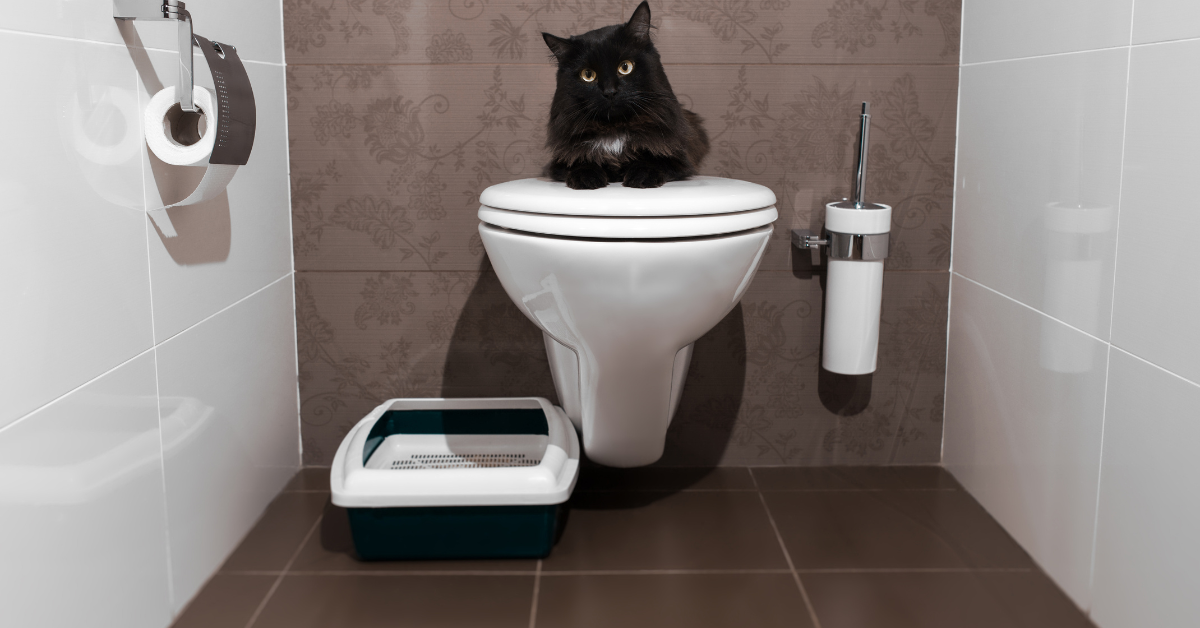Reasons Flushing Cat Poop Down Your Toilet May Cause Problems - Recommendations for Proper Handling
Reasons Flushing Cat Poop Down Your Toilet May Cause Problems - Recommendations for Proper Handling
Blog Article
This article below in relation to How to Dispose of Cat Poop and Litter Without Plastic Bags is seriously interesting. Give it a try and make your own findings.

Introduction
As feline owners, it's essential to be mindful of just how we take care of our feline friends' waste. While it might appear hassle-free to purge pet cat poop down the bathroom, this method can have damaging effects for both the atmosphere and human health and wellness.
Alternatives to Flushing
The good news is, there are more secure and much more accountable ways to take care of feline poop. Think about the following alternatives:
1. Scoop and Dispose in Trash
The most common technique of disposing of cat poop is to scoop it into a naturally degradable bag and throw it in the trash. Make sure to use a specialized litter inside story and deal with the waste immediately.
2. Use Biodegradable Litter
Choose eco-friendly pet cat trash made from products such as corn or wheat. These litters are environmentally friendly and can be safely thrown away in the garbage.
3. Hide in the Yard
If you have a yard, consider burying pet cat waste in a marked location away from veggie yards and water resources. Make sure to dig deep sufficient to stop contamination of groundwater.
4. Mount a Pet Waste Disposal System
Buy a pet waste disposal system especially developed for pet cat waste. These systems make use of enzymes to break down the waste, reducing odor and ecological effect.
Health and wellness Risks
In addition to environmental concerns, flushing pet cat waste can also pose health and wellness threats to humans. Feline feces might consist of Toxoplasma gondii, a parasite that can cause toxoplasmosis-- a possibly severe health problem, specifically for expectant women and individuals with weakened immune systems.
Environmental Impact
Purging feline poop introduces damaging microorganisms and bloodsuckers right into the supply of water, posing a significant danger to marine communities. These pollutants can adversely impact marine life and concession water top quality.
Final thought
Liable pet dog ownership prolongs beyond giving food and shelter-- it additionally involves appropriate waste administration. By refraining from purging pet cat poop down the toilet and going with alternate disposal approaches, we can reduce our environmental footprint and protect human health.
Why You Should Never Flush Cat Poop Down the Toilet
A rose by any other name might smell as sweet, but not all poop is created equal. Toilets, and our sewage systems, are designed for human excrement, not animal waste. It might seem like it couldn’t hurt to toss cat feces into the loo, but it’s not a good idea to flush cat poop in the toilet.
First and foremost, assuming your cat uses a litter box, any waste is going to have litter on it. And even the smallest amount of litter can wreak havoc on plumbing.
Over time, small amounts build up, filling up your septic system. Most litter sold today is clumping; it is made from a type of clay that hardens when it gets wet. Ever tried to scrape old clumps from the bottom of a litter box? You know just how cement-hard it can get!
Now imagine just a small clump of that stuck in your pipes. A simple de-clogger like Drano isn’t going to cut it. And that means it’s going to cost you big time to fix it.
Parasitic Contamination
Believe it or not, your healthy kitty may be harboring a nasty parasite. Only cats excrete Toxoplasma in their feces. Yet it rarely causes serious health issues in the cats that are infected. Most people will be fine too if infected. Only pregnant women and people with compromised immune systems are at risk. (If you’ve ever heard how women who are expecting are excused from litter cleaning duty, Toxoplasma is why.)
But other animals may have a problem if infected with the parasite. And human water treatment systems aren’t designed to handle it. As a result, the systems don’t remove the parasite before discharging wastewater into local waterways. Fish, shellfish, and other marine life — otters in particular — are susceptible to toxoplasma. If exposed, most will end up with brain damage and many will die.
Depending on the species of fish, they may end up on someone’s fish hook and, ultimately on someone’s dinner plate. If that someone has a chronic illness, they’re at risk.
Skip the Toilet Training
We know there are folks out there who like to toilet train their cats. And we give them props, it takes a lot of work. But thanks to the toxoplasma, it’s not a good idea.

We had been made aware of that editorial on Don’t flush cat feces down the toilet from someone on our other domain. Those who liked our blog entry kindly be sure to pass it around. Thanks a lot for taking the time to read it.
Book 24/7 Report this page